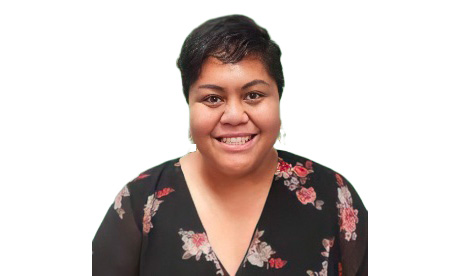Over the weekend, as Australia elected a new prime minister and Beauden Barrett landed a drop goal to secure the Blues a win against the Brumbies, a clip from an Australian podcast went viral on TikTok.
On the latest episode of Jordan Simi’s Grouse & A Few Reds podcast, released on May 20, the topic of “New Zealand girls” came up.
Simi, a Sydney social media influencer and former rugby league player, described New Zealand women as “not looking nice” compared to UK women, who he described as the “cream of the crop”.
Simi, who is Sāmoan and originally from South Auckland, went on to say: “shout out to South Auckland, where there was an all-girls school there and you would look at them and think, is that a girl?”
His two male co-hosts roared with laughter.
South Aucklander Mariner Fagaiava-Muller posted the audio clip on TikTok, commenting that hearing it made his blood boil.
Fagaiava-Muller’s video has been viewed over 47,000 times and counting. Simi later replied to Fagaiava-Muller’s video, saying his comments were “just a joke”.
There’s only one all-girls school in South Auckland and it’s McAuley High School.
I went to McAuley High School.
The “joke” that was directed at McAuley students is nothing new.
If you attended McAuley, you were labelled a bulldog.
You were barked at if you were spotted in your school uniform out in public.
Students from other schools mocked us saying we looked manly or for having legs with big taro calves.
I lost count of how many times my school bus had its window smashed by a rock from another school student. Someone even wasted a mince and cheese pie-throwing it at the bus window.
McAuley students, like many South Auckland students at decile one schools, experience marginalisation on a daily basis.
We experience the kind of adversity where a joke about our appearance is just another stress we have to deal with.
If you attended McAuley,
you were labelled a bulldog.
You were barked at
if you were spotted in your school uniform
out in public.
McAuley is a school with limited resources and limited subject options, where the majority of families come from low-income households. They don’t have the privilege of choosing whatever they want for lunch, having the top stationery brands, or being able to afford a blazer as part of the complete school uniform.
When you are a Pasifika girl from a household juggling study, errands and cultural responsibilities; when self-confidence is already a rarity; and you hear someone from your own community, on a platform with a large following, insult young girls for not looking a certain way – that their dark-coloured eyes, brown skin and black thick hair aren’t seen as beautiful – it destroys what little self-belief you had left.
This is why the “joke” is not funny.
Because of those comments made throughout my years in high school, I, like many McAuley students, used it as unspoken motivation to do better, be better.
Since the early 2000s, McAuley has worked extra hard to prove its worth, to prove people wrong about the stereotypes placed on us by others. McAuley was featured in Metro a few times for their high academic rates for a decile one school.
In 2016, the school was awarded both Excellence in Engaging and Education Supreme Awards by the prime minister.
- Elisapeta Toeava of the Northern Mystics;
- Annetta Nu’uausala from the women’s Newcastle Knights NRL team;
- Niu FM afternoon radio presenter Sia Petelo;
- prominent New Zealand multi-disciplinary artist Salome Tanuvasa;
- senior urban planner Eseta Maka-Fonokalafi;
- Bernadette Robertson, a member of the South Pacific Professional Engineering Excellence group; and myself,
- Pacific communities editor at The Spinoff.
All schooled at McAuley. All the while maintaining our reputation as “one of the schools to beat” at the largest Polynesian dance competition in the world, ASB Polyfest.
Of course, every high school has students who have gone off to do incredible, headlining, awe-inspiring things. So why do I bring up McAuley alumni’s achievements?
It’s because a lot of these women have had to face huge obstacles to get where they’re at now, have had to work three times harder than students from wealthier schools.
They’ve had to face the culture shock of leaving their family, their community and a predominantly Pasifika high school to attend a university where being Pacific is a minority, where being humble – a virtue ingrained in Pasifika people – isn’t going to cut it if you want to stand out in a class of over 600.
Casually making a “joke” about the appearance of young girls won’t affect Simi and his podcast co-hosts, but it will surely hurt the confidence of many of those McAuley students targeted.
I worry they’ll lose pride in a school uniform now associated with the “manly” insult lobbed at them by those deemed more powerful because they have a following larger than their ego.
To all past, present and future McAuley students, Domine In Te Speravi – Lord in you I hoped.
It’s a motto that lives on for us, alongside our memories of beating the odds in Tāmaki Makaurau.
- Sela Jane Hopgood is the Pacific communities editor of Public Interest Journalism funded through NZ on Air. New Zealand born Tongan, she writes stories about issues affecting the Pacific communities across Aotearoa.
- First published in The Spinoff, republished with permission.
News category: Analysis and Comment, Great reads, Palmerston.




